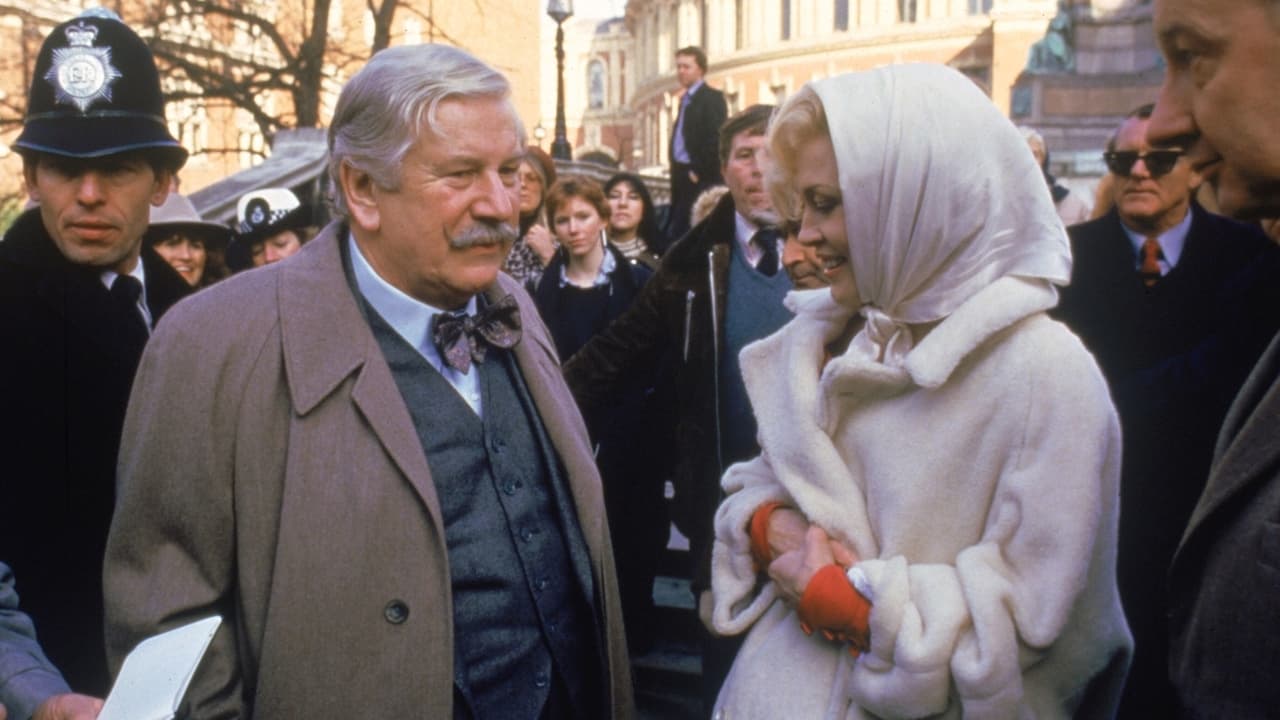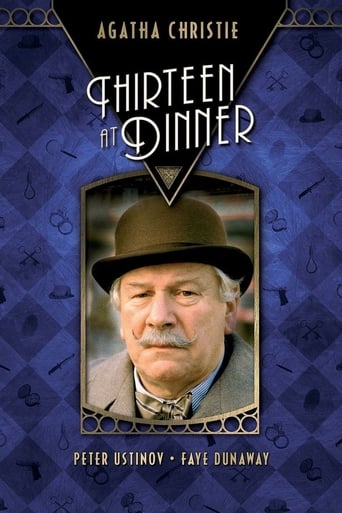

one of my absolute favorites!
... View MoreInstead, you get a movie that's enjoyable enough, but leaves you feeling like it could have been much, much more.
... View MoreIt really made me laugh, but for some moments I was tearing up because I could relate so much.
... View MoreIt is neither dumb nor smart enough to be fun, and spends way too much time with its boring human characters.
... View MoreAgatha Christie's ageless Hercule Poirot once again stylishly portrayed by Peter Ustinov makes his television debut in Thirteen for Dinner. The famous Belgian sleuth is a guest on the David Frost Show with a pair of celebrities, Lee Horsley and Faye Dunaway who will shortly figure prominently in his next case.Although Ustinov is flawless as ever, the updating of the story from the time of Stanley Baldwin to the time of Margaret Thatcher makes the plot rather silly. Without giving anything away, let me say that what would have made sense for a motive in 1935 looks kind of ridiculous in 1985 given changing mores.The presence of David Suchet who played Hercule Poirot on the BBC in many adaptations of Agatha Christie as Inspector Japp in this film also gives it some interest. The scenes with Poirot and Suchet are good and Suchet is so good an actor you barely recognize him.Some Christie stories can be successfully updated. But sad to say Thirteen at Dinner is not one of them.
... View MoreWe were saddened to see an excellent Agatha Christie story ruined by such bad direction and acting. David Suchet as Inspector Japp was the only nice touch. In fact whenever he was on screen he stole the show. Peter Ustinov was good, but all the overacting around him actually diminished him. Faye Dunaway and the rest of the cast overacted. I guess they were trying to parody the English impression of boisterous Hollywood types (maybe they are right for that). And why portray Hastings as such a pitiful fop. The bad tone was set in the first 5 minutes with the David Frost interview and character interaction. If we had known the whole movie was going to continue on such a bad trend we would have stopped it.
... View MoreThe one and only true Hercule Poirot is the one played by David Suchet. His mastery of the character is superb. Peter Ustinov does not have the finesse of the wonderful character written by Agatha Christie. I regard Peter Ustinov as a wonderful actor who has be horribly miscast in this role. David Suchet brings to life the impeccable taste, the fastidious demeanor, and idiosyncratic quirks of Mr. Poirot as written by Agatha Christie. To me, Hercule Poirot becomes so much more when being played by David Suchet, much like the portrayal of Jeremy Brett in the Sherlock Holmes series. Basil Rathbone may have been the first in the films, but Brett brings depth and character to the part.
... View MoreNice adaptation of a typical Agatha Christie novel complete with hatfuls of obscure clues, red herrings, guilty secrets, and suspects with enough motives to kill the poor victim a dozen times over. The original novel, by the way, was called 'Lord Edgeware Dies' I'm not sure why the name change was needed. It's not an improvement.The updating to a modern setting worked well up to a point - the opening talk show scene was an amusing addition, but the period setting is for me part of the charm, and the cosy relationship with the police that Poirot enjoys seemed less believable than it would have in it's original time.The trouble with screen adaptations of characters like Poirot is that they are never quite how you imagined them. For me, neither Peter Ustinov as Poirot nor Jonathan Cecil as Hastings were at all right for the part. It is ironic that David Suchet who later established himself as the ultimate Poirot played Inspector Japp.
... View More